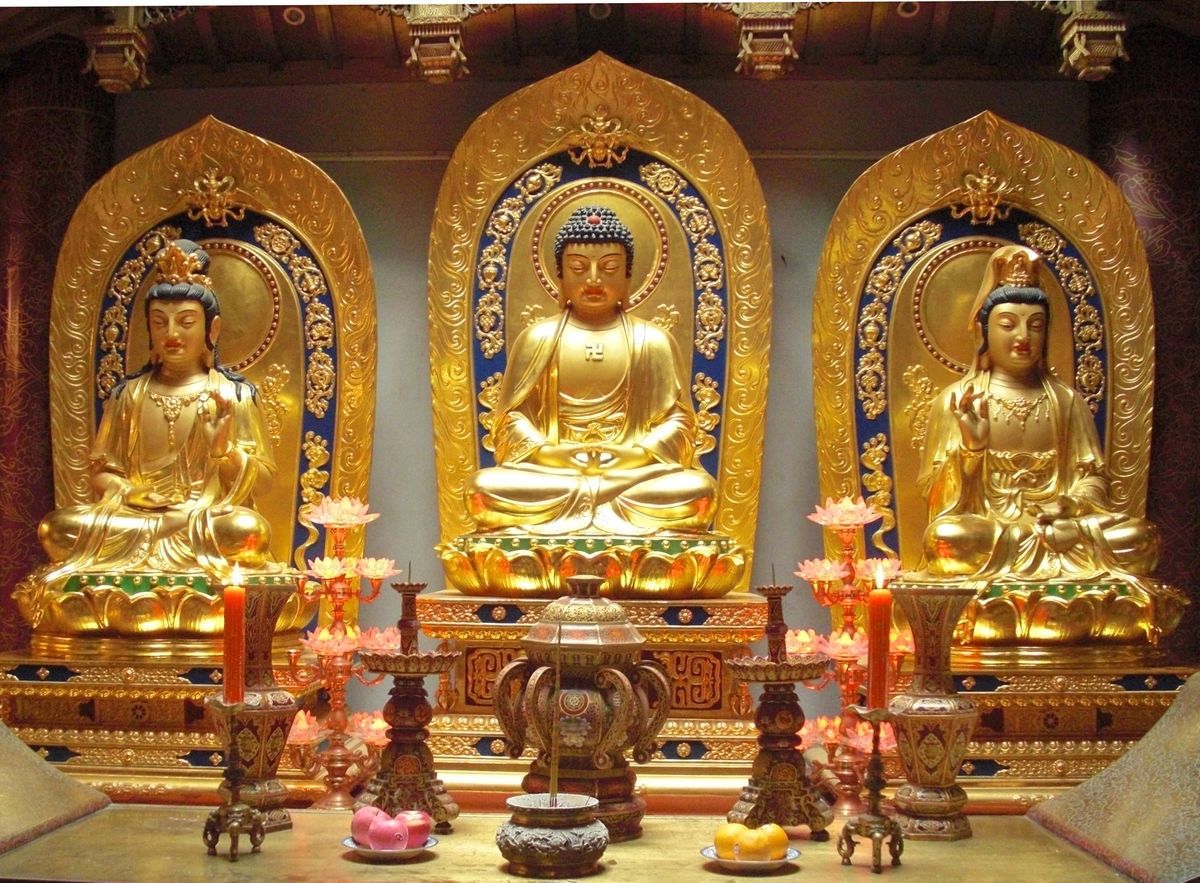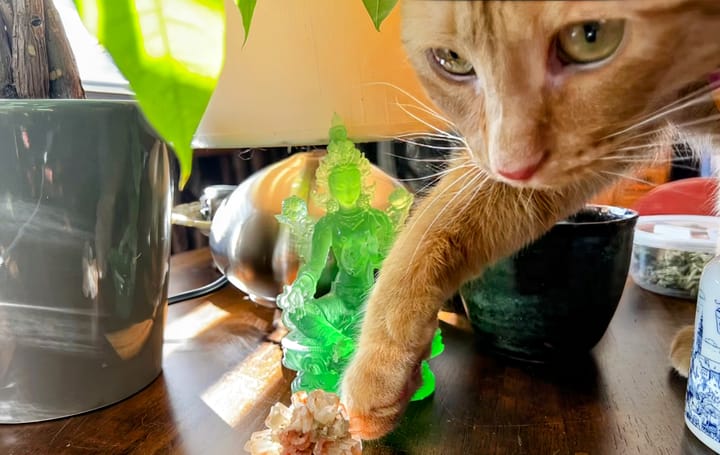Compassion from Self and Buddha
Today I learned about a Buddhist way of thinking about Self from Satya Robyn, a Buddhist teacher, author, and IFS therapist.

Through guided meditations like this one, I’ve come to understand what Internal Family Systems calls the “Self” as something very much like “Buddha-nature,” and my internal family likes to imagine Self in the form of the female Buddha called Tara, who both perfectly knows and perfectly loves every being. She loves all of us the way Self loves all our parts.
Today I learned about another Buddhist way of thinking about Self from Satya Robyn, a Buddhist teacher, author, and IFS therapist. “In Internal Family Systems,” she writes,
Great Love is known as ‘Self’ … and it is perpetually available both inside of us and outside of us. In Pure Land Buddhism this quality is personified as Amitabha Buddha, the Buddha of Infinite Light.
Self, like Amitabha, loves us perfectly, despite all our protectors’ mostly clumsy and sometimes harmful efforts to keep our exiles out of sight. And as soon as we encounter that perfect love, Robyn explains, our protectors can finally stand down:
How can we start to dismantle the fierce self-protective defenses that keep us … always striving for more or better? Internal Family Systems and Pure Land Buddhism offer us the same answer: we must encounter Great Love. We must begin to believe in the possibility of something that sees us exactly as we are, with all our deep flaws and ugliness, and that accepts us just the same.
It sounds too good to be true, right? And yet, day after day, we see the truth of it in our own systems. May you encounter Great Love today, in whatever form your parts find most consoling!





